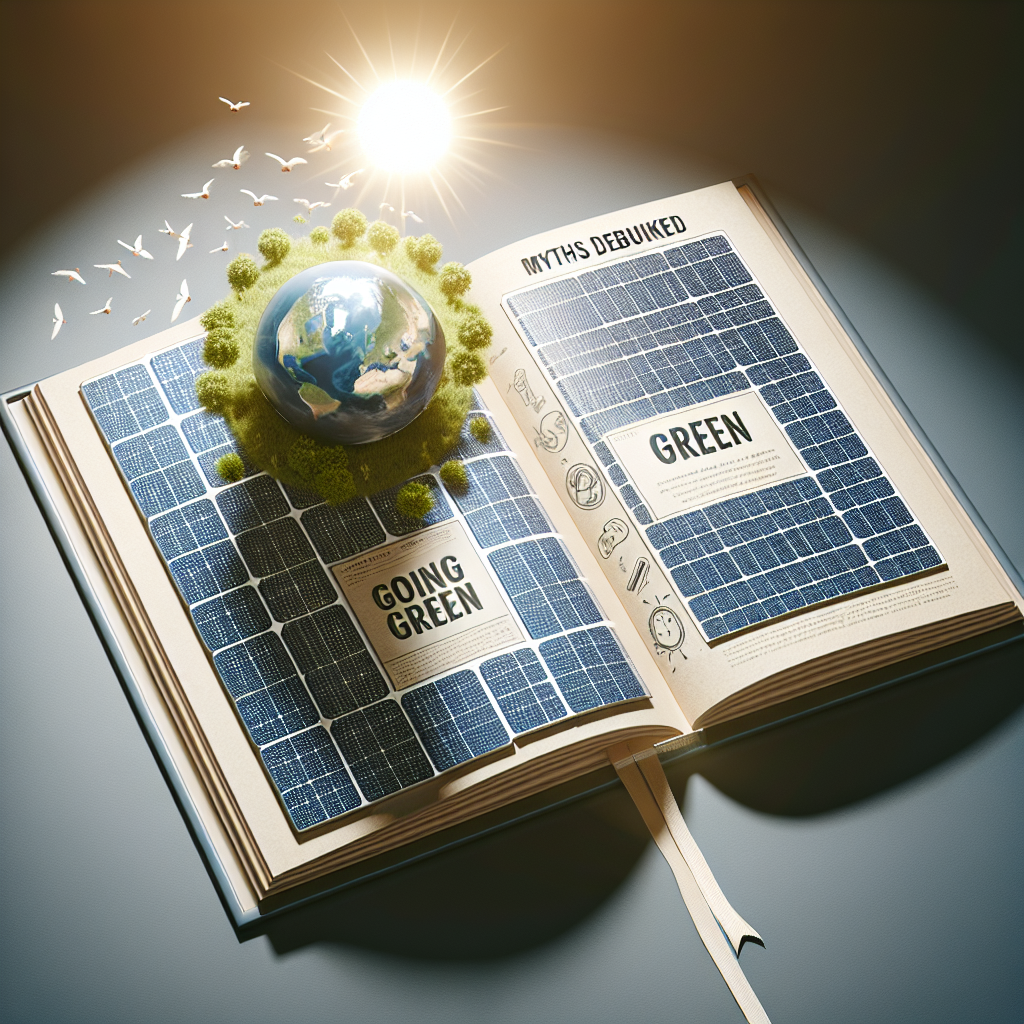As the world pivots toward sustainable energy solutions, solar panels have emerged as a popular choice for homeowners and businesses aiming to reduce their carbon footprint. However, misconceptions and myths about solar energy continue to circulate, potentially deterring many from making the switch. This article aims to debunk common solar panel myths and provide accurate information that can help you make an informed decision about going green.
Myth 1: Solar Panels are Too Expensive
One of the most prevalent myths surrounding solar panels is that they require a substantial upfront investment that many cannot afford. While the initial cost of solar installation can be significant, prices have been steadily decreasing over the past decade due to technological advancements and economies of scale. Furthermore, various financing options, tax credits, and rebates are available, often making solar panels more affordable than traditional energy sources in the long run. In many cases, homeowners can reduce their electricity bill significantly, which often leads to savings that outweigh the initial costs over time.
Myth 2: Solar Panels Only Work in Sunny Climates
Another common misconception is that solar panels are only effective in sunny locations. While it’s true that direct sunlight enhances solar panel efficiency, they can still generate energy on cloudy or rainy days. Solar panels harness both direct and diffused sunlight; even on overcast days, the technology can capture enough light to function effectively. Many regions with less sunny weather have successfully implemented solar energy systems and continue to benefit from their efficiency.
Myth 3: Maintenance is Complicated and Costly
Some people believe that solar panels require extensive and costly maintenance to remain efficient. In reality, solar energy systems have few moving parts, meaning they are quite durable and relatively low-maintenance. Regular cleaning and occasional inspections are generally sufficient to keep solar panels in optimal condition. Most manufacturers provide warranties of 20-25 years, further attesting to the reliability of solar technology.
Myth 4: Solar Energy Isn’t Reliable
Another myth is that solar energy is inherently unreliable, particularly when the sun isn’t shining. However, technology has advanced significantly in recent years, incorporating energy storage solutions such as batteries to store excess energy generated during sunny days. These batteries allow homeowners to use solar energy even during the night or in periods of low sunlight, ensuring a constant and reliable power supply. Additionally, solar energy can be grid-tied, providing access to the electrical grid when solar generation is insufficient.
Myth 5: Installing Solar Panels Will Decrease My Home’s Value
Some potential solar adopters fear that installing solar panels might lower their home’s value. In fact, numerous studies have shown that homes equipped with solar energy systems typically have higher resale values. Homebuyers often see solar installations as a valuable asset that can lead to lower utility costs. As awareness of renewable energy grows, many see solar panels as an attractive feature when considering a home purchase.
Myth 6: Solar Panels are Bad for the Environment
Contrary to the belief that solar panels harm the environment, they are actually a sustainable energy source that can significantly reduce greenhouse gas emissions. The materials used in solar panels are becoming increasingly eco-friendly, and the environmental impact of manufacturing these panels is much lower compared to fossil fuels. Additionally, solar energy contributes to reducing air pollution and conserving natural resources.
Myth 7: Solar Energy Can’t Meet My Energy Needs
Another misconception is that solar energy alone won’t be sufficient to meet a household’s energy consumption needs. The size of a solar energy system can be tailored to fit individual requirements, allowing homeowners to scale their systems according to their energy demands. Consulting with a reputable solar provider can help assess your specific energy needs and design a system that provides adequate power.
Conclusion
The myths surrounding solar panels often stem from misinformation or outdated beliefs. As renewable energy becomes increasingly pivotal in combating climate change, understanding the realities of solar energy is essential for anyone considering the transition to a greener lifestyle. With advancing technology, decreasing costs, and a growing commitment to sustainability, solar energy is an accessible and responsible choice for the future. By debunking these myths, we can encourage more individuals and businesses to harness the power of the sun and contribute to a cleaner, more sustainable planet.



